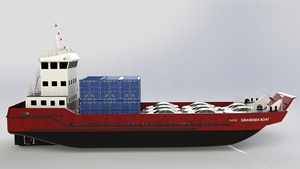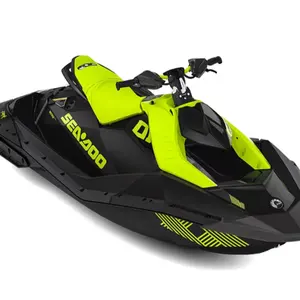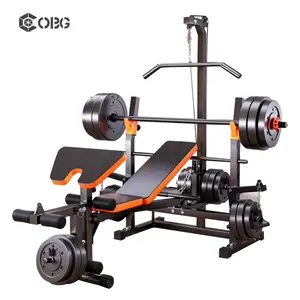Popular in your industry
































































































































































































Top categories
About cargo ships
What are Cargo Ships
Cargo ships, also known as freighters, are a type of vessel specifically designed for the transportation of goods across the world's oceans and waterways. They are the lifeblood of global trade, carrying the vast majority of internationally traded goods, ranging from raw materials like coal and iron ore to finished products such as cars and electronics. These vessels come in various sizes and configurations, tailored to different types of cargo and trade routes.
The primary function of cargo ships is to efficiently move large quantities of goods over long distances. They are built to optimize space, safety, durability, and fuel efficiency. The design of a cargo ship considers factors such as the type of cargo it will carry, the routes it will travel, and the ports it will visit. For instance, some ships are equipped with refrigeration facilities for transporting perishable goods while others have open decks for oversized cargo.
Cargo ships operate based on principles of maritime logistics and navigation. Skilled crews manage the operations onboard, from navigating treacherous sea routes to handling complex loading and unloading procedures. Modern cargo ships use sophisticated technology for navigation, communication, and cargo handling, ensuring that goods can be moved swiftly and safely from one port to another.
These ships are essential not only for international commerce but also for economic development. By enabling countries to import and export goods efficiently, they contribute to global economic integration. As such, they are an indispensable asset for businesses engaged in international trade.
Types of Cargo Ships
The world of maritime transport is vast and varied, with different types of cargo ships serving specific needs within the industry. These vessels are categorized based on their design, cargo capacity, and functionality.
Bulk Carriers: As their name suggests, bulk carriers transport unpackaged bulk cargo such as grains, coal, ore, cement in large vessel holds. Their design varies depending on the type of bulk cargo they carry, with some having specialized features like self-unloading equipment.
Container Ships: These are among the most common types of cargo ships, designed to carry standardized shipping containers. They have transformed global trade by simplifying transshipment of goods from one mode of transport to another—be it sea, rail, or road.
Tankers: Tankers are designed for transporting liquid cargoes such as crude oil, chemicals, or liquefied natural gas (LNG). They have specialized tanks and pumping systems to handle these potentially hazardous materials safely.
General Cargo Ships: These vessels carry packaged items and are often used when goods need to be transported in smaller quantities. They can handle a variety of cargo types making them versatile for different trades.
Reefer Ships: Specialized in transporting perishable goods that require temperature-controlled environments such as fruits, meat, fish, vegetables, dairy products. They are essentially floating refrigerators.
Each type has its common use cases that serve different sectors within global trade markets.
How to choose Cargo Ships
Selecting the appropriate cargo ship for your business's logistics needs requires careful consideration of several factors including the type of goods being transported, volume, destination routes, and specific requirements related to your industry.
If your business deals with large quantities of unpackaged dry materials like grains or ores, bulk carriers might be your go-to option due to their large storage capacities and efficient unloading systems. Conversely, if you're transporting a varied mix of packaged goods in smaller quantities then a general cargo ship could provide the flexibility you need.
For businesses involved in international trading that require standardized loading and unloading processes with minimal handling risks, container ships offer a streamlined solution. Their use of standard-sized containers also facilitates easier tracking and management of goods.
Transporting liquids like oil or chemicals? Tankers would be your necessary choice given their design for safely carrying hazardous liquids over long distances. Meanwhile, reefer ships should be considered if your products need refrigeration throughout transit due to their specialized temperature control capabilities.
Lastly, consider your route's frequency and destination when selecting a ship type. Certain vessels may be better suited for specific geographic regions or have schedules that align more closely with your shipping needs.
Best Cargo Ships on Alibaba.com
Alibaba.com serves as a nexus for businesses seeking reliable solutions in acquiring cargo ships. It provides an extensive selection suitable for various industries looking to streamline their shipping operations globally. Whether you need a bulk carrier for transporting raw materials or a sophisticated container ship for international trade logistics, Alibaba.com connects you with suppliers who can meet those demands.
Alibaba's platform simplifies the process by enabling buyers to communicate directly with suppliers about customization requirements or specific commercial needs. With a commitment to aiding small and medium-sized enterprises in expanding their reach worldwide through effective online trade solutions, Alibaba.com ensures that businesses have access to a diverse range of vessels without being limited by location.
Moreover, Trade Assurance service offered by Alibaba.com acts as a safety net for transactions providing businesses peace-of-mind knowing that their investments are protected until delivery is complete. The platform's extensive network spans over 190 countries with a robust selection provided by various suppliers; Alibaba.com is not just about purchasing but about connecting businesses with opportunities across continents ensuring growth and success in the maritime industry.
Common FAQs for Cargo Ships
What are the key factors in determining the right type of cargo ship for my business?
The right type of cargo ship for your business largely depends on the specific cargo you intend to transport, the volume of goods, the nature of your goods (e.g., liquid, solid, perishable), and your preferred shipping routes and destinations.
How does the size of a cargo ship affect its operational efficiency?
The size of a cargo ship influences its cargo capacity, fuel consumption, and ability to navigate certain waterways or ports. Larger ships generally offer greater economies of scale but may be restricted by deep-water port availability.
What are bulk carriers and what kind of cargo are they best suited for?
Bulk carriers are designed to transport large volumes of unpackaged commodities like grains, coal, and minerals. They are ideal for businesses that need to move such materials in bulk efficiently.
How do container ships differ from general cargo ships?
Container ships are built to carry standardized shipping containers, enabling seamless transfer between different transportation modes. General cargo ships carry various types of packaged goods and offer more flexibility for smaller shipments that don't require containerization.
What is a reefer ship and when should I consider using one?
A reefer ship is a refrigerated vessel designed to transport perishable goods that require temperature-controlled environments. It is essential for businesses dealing with food items, pharmaceuticals, or other temperature-sensitive products.
Can tankers transport any type of liquid cargo?
Tankers are specialized for carrying liquid cargoes but are usually categorized based on the liquid they carry, such as crude oil, chemicals, or LNG. Each tanker type is equipped with specific safety features and handling equipment suitable for its intended cargo.
Are there any restrictions on the types of ports that can accommodate large cargo ships?
Yes, some ports may have depth or size restrictions that prevent large cargo ships from docking. It's important to ensure that the selected ship type can be accommodated by the ports along your trade route.
How do I determine the carrying capacity I need for my cargo ship?
The carrying capacity required depends on the weight and volume of your goods as well as how frequently you plan to ship. You may need to consult with a maritime logistics expert or shipping agent to determine the appropriate vessel size.
What should I consider when transporting hazardous materials by sea?
When transporting hazardous materials, it's crucial to use a vessel designed with safety features specific to the type of hazard (e.g., chemical tankers), adhere to international regulations, and ensure proper documentation and handling procedures are in place.
How does Alibaba.com facilitate the purchase of cargo ships?
Alibaba.com connects buyers with suppliers who can offer a variety of cargo ships suitable for different commercial needs. The platform allows for direct communication with suppliers about specific requirements and customization options.
What safeguards does Alibaba.com provide when purchasing a cargo ship through their platform?
Alibaba.com provides Trade Assurance service which helps protect payments made by buyers until the delivery of the cargo ship is completed, ensuring transaction security.
Can I find suppliers on Alibaba.com that provide door-to-door service for cargo ships?
While Alibaba.com connects buyers with suppliers offering various service types including door-to-door services, specifics would have to be discussed directly with the suppliers listed on the platform regarding their individual service offerings.














































